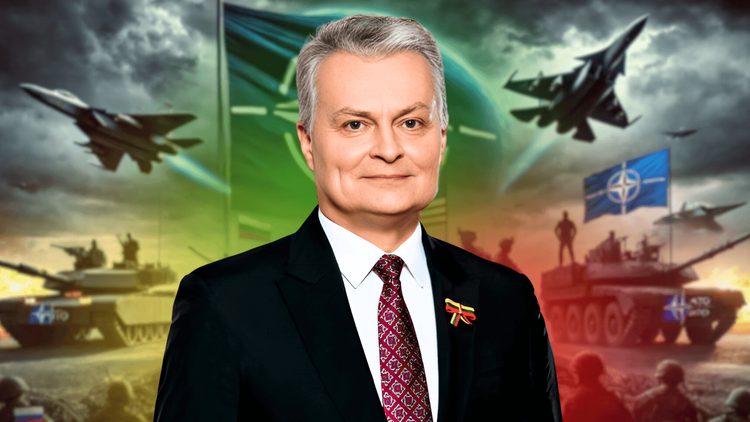Lithuania Doubles Down on Defense as Trump Pressures NATO Allies on Spending
Lithuania’s leader warns of ongoing Russian threats and backs Trump’s call for increased NATO defense spending.

As tensions escalate in Eastern Europe, Lithuanian President Gitanas Nausėda has thrown his full support behind former U.S. President Donald Trump’s call for increased NATO defense spending. With the war in Ukraine ongoing and Russia’s military presence looming over the Baltic region, Nausėda believes that a strong financial commitment to defense is the only way to deter future aggression from Moscow.
A Relentless Threat from the East
Despite Ukraine’s resilience, Nausėda warns that even a ceasefire will not put an end to the dangers posed by Russia. The Lithuanian president emphasized that any pause in fighting would simply allow the Kremlin to regroup and strike again.
“They will use this break to consolidate, to strengthen their military capabilities, and to strike again,” Nausėda stated. “And then the main question is, what will be Russia’s next target?”
Lithuania’s unique geographical position makes it a prime concern. With Russia’s heavily militarized Kaliningrad enclave to the west and Belarus—a known proxy for Moscow—to the east, Lithuania and its Baltic neighbors remain on high alert.
Trump’s 5% NATO Spending Goal Gains Support in Eastern Europe
Trump’s demand that NATO allies increase their defense budgets to at least 5% of GDP has been met with mixed reactions across Europe. Some Western European nations argue that such a target is economically unrealistic. However, for countries like Lithuania, which have lived under the shadow of Russian aggression, the proposal is seen as not just necessary but urgent.
Lithuania recently became the first NATO member to officially commit to the 5% spending goal. Nausėda stressed that ensuring national security cannot be left solely to allied forces.
“It is an absolutely clear priority for this country. We must show that we can take responsibility for our own defense,” he said.
No Peace Talks Without Ukraine
Another key issue for Lithuania is ensuring that Ukraine is actively involved in any negotiations to end the war. Nausėda made it clear that a resolution crafted behind closed doors—especially one dictated by Moscow and Washington—would be unacceptable.
“Ukraine has paid a very high price in this war,” he said. “They have lost many human lives, infrastructure, and homes. They deserve the right to set the conditions of any peace agreement.”
While concerns initially swirled that Trump might scale back U.S. support for Ukraine, his administration has instead signaled strong opposition to Russian aggression, even threatening new sanctions against Moscow.
Baltic Sea Infrastructure Under Attack?
Adding to Lithuania’s concerns is a series of incidents involving undersea cables and pipelines in the Baltic Sea. Since October 2023, at least 11 Baltic cables have been damaged, raising alarms over potential sabotage. The most recent event—a severed fiber optic cable between Latvia and Sweden—has only fueled fears of hybrid warfare.
In response, NATO has launched “Baltic Sentry,” a mission designed to enhance surveillance and protection of the region’s critical underwater infrastructure.
Nausėda insists that NATO and the EU must take stronger measures to prevent further incidents. “It is time for us to show some muscle,” he stated.
A Frontline Nation Prepares for the Worst
Despite some domestic opposition to further military spending, Nausėda remains firm in his commitment to Lithuania’s defense. As a NATO frontline country, he believes Lithuania must do everything possible to deter Russian aggression.
“We can rely on our NATO allies, but we cannot expect anyone else to care about our security if we are not willing to defend ourselves,” he said.
With tensions at an all-time high, Lithuania is making it clear: it will not wait for another Russian offensive before taking action.






